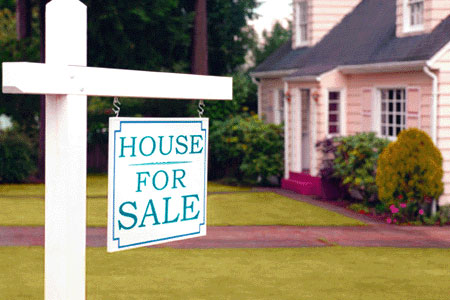
Should you sell your house or rent it out? This is a classic question for people who want or need to move on from their current home. There are advantages and disadvantages to each option, with the circumstances of each choice weighing heavily on the consequences…
Having a choice is always better than being forced into a singular option, no matter what you are discussing in life. When it comes to real property ownership, the decision to sell or keep a property as a rental is one of the classically confounding choices in history.
This post details whether you should sell your home or keep it and rent it when it is time for you to move elsewhere.
Reasons to Sell Your House or Rent it Out?
There are many scenarios that may make a person want to sell their property. Maybe they live in the home or maybe it has always been a rental unit that was purchased for income. Here are some of the explanations for wanting to sell:
Maybe the value of the property is getting lower. This may be linked to market conditions or may be related to locations or circumstance-specific factors that may or may not improve. Maybe the value is going up and you simply want to cash in…
You might want to live elsewhere for work, freedom, health, better weather or whatever reason. You simply can’t change the location of a property, so you can’t take it with you…
You may have outgrown the house or the house may be too big for you. A growing family may need more space, while empty nesters prefer a smaller, more manageable space.
You might find yourself in financial trouble and need an influx of money. Maybe you can’t afford to keep the home at all, due to economic issues or being upside down on the mortgage vs. equity equation.
Maybe the home needs lots of repairs and you can’t afford them or simply do not want to over-invest in the property.
There are far too many reasons to explain why you might want to sell a property, but the above are the most common.
Selling Your House Pros and Cons
Let’s first look at the pros of selling:
If you sell, then you are free from the potential burdens of the property. You are truly free to move on to the next stage of life, unencumbered.
You might make good money from the sale, which can be used to finance future security, investment or lifestyle choices. This is often true when the market is high. However, the market is not always high, so it is necessary to know and understand the housing market before making this choice.
If the home is too expensive for you, selling it will remove the financial strain and allow you to start over at a more affordable cost.
Selling the property will take some strain off your credit also, making it easier to access new credit opportunities in some areas of the world.
Now, let’s look at the cons of selling property:
Selling is not always easy and may require additional investment in order to get the deal done. Selling will usually require paying extra fees to real estate professionals, lawyers and of course, home stagers.
Selling property reduces your assets and can diminish your net worth in some instances.
Selling at the wrong time can cost you big! You might lose money on the property or at least not be able to truly capitalize on the money you might have made if you waited longer to sell when the market is at a peak.
Should you Keep the Property To Rent Out? / Decisions
Selling is easier for most people. They can wrap their mind around selling much easier than they can around investing in real estate as a landlord. However, just because a path is easier to navigate, does not make it superior!
Much of the true wealth in the world has been generated through property investments. If you can own and allow someone else to pay down the property for you, you are in a real win scenario. This is the potential advantage of renting your property out. Let’s set some basic rules for when renting might be a better idea than selling:
If you can afford to keep the property with the expected rent and the property has no long-term liabilities associated with it, then renting it out will always win over selling. You can simply keep the asset while someone else pays for it, month after month, year after year. Eventually, you will own it outright and be able to use the continuing rent as a source of sustainable (and most often increasing) income,, or you can choose to sell it when you can maximize profitability on the transaction.
Even if it might be a short-term struggle to rent the property out and still make ends meet on expenses, it is worth serious consideration. If you can add a bit of money to subsidize the property by simplifying your life and reducing expenses, the rents will likely increase over time to eventually meet, then surpass the expenses over several years.
One of the best ways to build wealth and a lasting income that can endure into your retirement is by purchasing and leasing out properties. Many people do this as a full time job. Research the market. Buy the property low. Fix it to an acceptable standard. Rent it out. Repeat. Invest profits into higher down payments with less interest on loans. Make more money on each subsequent property until your cash flow allows you to buy using cash only. You can become wealthy doing this is a few years.




